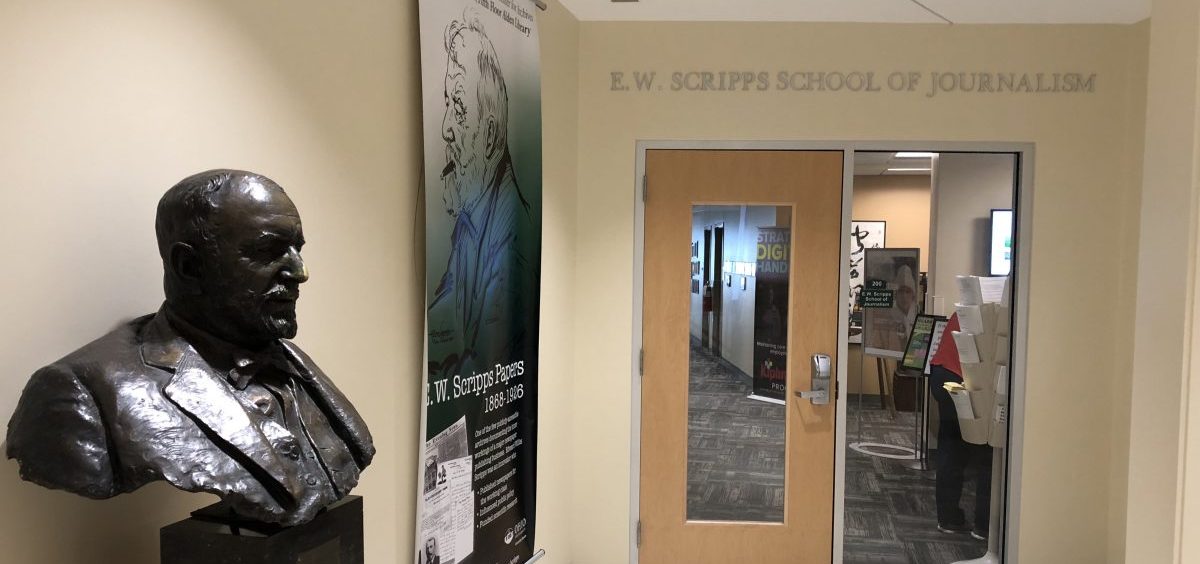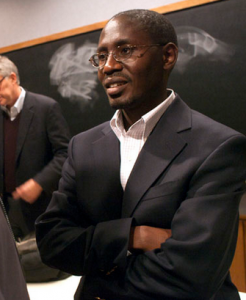News

Report: No Proof OU Prof Knew Student’s Investigation Role Before Ph.D. Meeting
By: Susan Tebben
Posted on:
ATHENS (WOUB) — An Ohio University investigator’s report says there was no documented proof that a Journalism professor knew of a graduate student’s role in an investigation of him before he argued against admitting her into a Ph.D. program.
This conclusion comes despite statements from a witness saying he mentioned the investigation before the meeting.
In a March 21 Memorandum of Findings obtained by WOUB, an investigator from OU’s Office of Equity and Civil Rights Compliance lays out the allegations of a graduate student against Dr. Yusuf Kalyango.
The student, who is not named in the suit, alleged Kalyango “strongly advocated” against her admission to the Journalism Ph.D. program in a meeting of the graduate faculty of the school in February 2018. Investigator G. Antonio Anaya wrote in the memorandum Kalyango was “uncharacteristically vocal in his criticism” of the woman, using terms like “antagonistic,” incompatible” and “poisoned the well.”
“Further, (Kalyango) gave the committee an ultimatum: if (the woman) was admitted to the Ph.D. program, (Kalyango) would have nothing to do with or work with anyone in the program,” the memorandum stated. “As a direct result thereof, the Graduate Committee rejected (the woman’s) application.”
The memorandum goes on to state that after Kalyango resigned from the committee, the woman’s application was reconsidered and she was admitted to the program.

The woman said Kalyango’s actions came as a result of her role as a witness in a sexual harassment case filed by Tess Herman and substantiated by ECRC.
Kalyango told the investigator he “could not have acted in retaliation against (the woman) because he did not know that (the woman) participated in that investigation.”
Investigator G. Antonio Anaya spoke with the woman, Kalyango, and several witnesses in the investigation, to establish a timeline of known facts.
In October 2017, four months before the Ph.D. admission meeting took place, one witness (“Witness D”), described as a member of the faculty of the Study of the U.S. Institute (SUSI), brought up the graduate student’s name to the investigator in the context of Herman’s investigation. The witness acknowledged that both she and Kalyango knew the woman and Herman were “close friends.”
However, Witness D told the investigator it was September 2017 when Kalyango told her that “he intended to vote against (the woman’s) admission to the Ph.D. program, and said, ‘I can’t deal with her (the woman) telling every student what’s happening (with Herman’s complaint).”
The woman would not be interviewed in the Herman case until November, weeks after Kalyango was interviewed for the last time.
That same witness also reported to graduate faculty that she had “had issues” with the woman in the Study of the U.S. Institute (SUSI), a program that at the time was run by Kalyango.
The witness said she “came to believe” the woman had told SUSI scholars about the allegations Herman had leveled against Kalyango, as reason for Herman’s leaving the program.
“Witness D reported that both she and (Kalyango) believed that the only reason for the change in (the woman’s) behavior was the investigation of (Herman’s complaint),” the memorandum stated.
The witness went on to describe behavioral problems she said she and the SUSI supervisors had with the woman, including actions the witness said amounted to insubordination.
“Witness D also stated that, because there was a ‘concerted, very negative attitude towards’ (Kalyango) among the SUSI scholars that she had never seen in a prior group of SUSI scholars and, therefore, Witness D believes that the graduate students, including (the woman), ‘went out of their way to make (Kalyango) look bad in front of the scholars,'” according to the memorandum.
But when Anaya reached out to SUSI scholars to ask about the woman’s performance during the program, eight of 16 scholars responded, all of which were “highly” complimentary of the program assistants, including the subject of the memorandum.
Anaya said the evidence was “very strong” that Kalyango had taken “adverse action” against the woman when he spoke at the graduate meeting he was not expected to attend. The evidence was not strong enough to prove that he had advocated specifically because of the investigation against him, Anaya wrote.
Kalyango offered “several additional reason — other than (the woman’s) participation in the investigation of the complaint of (Herman) — for opposing (the woman’s acceptance to the Ph.D. program,” according to the memorandum.
Anaya concluded that there was “no independent corroborating evidence to establish that (Kalyango) did know that (the woman) was interviewed as part of the investigation of (Herman’s) complaint until after the faculty meeting at which (Kalyango) advocated against (the woman’s admission to the Ph.D. program,” the memorandum stated.
The Herman investigation has become a civil lawsuit, and Kalyango is awaiting a decision on whether he will be detenured based on the information from that case and another sexual harassment investigation that has not been completed.
Kalyango has publicly denied the claims in Herman’s case, including filing a countersuit to Herman’s lawsuit.

